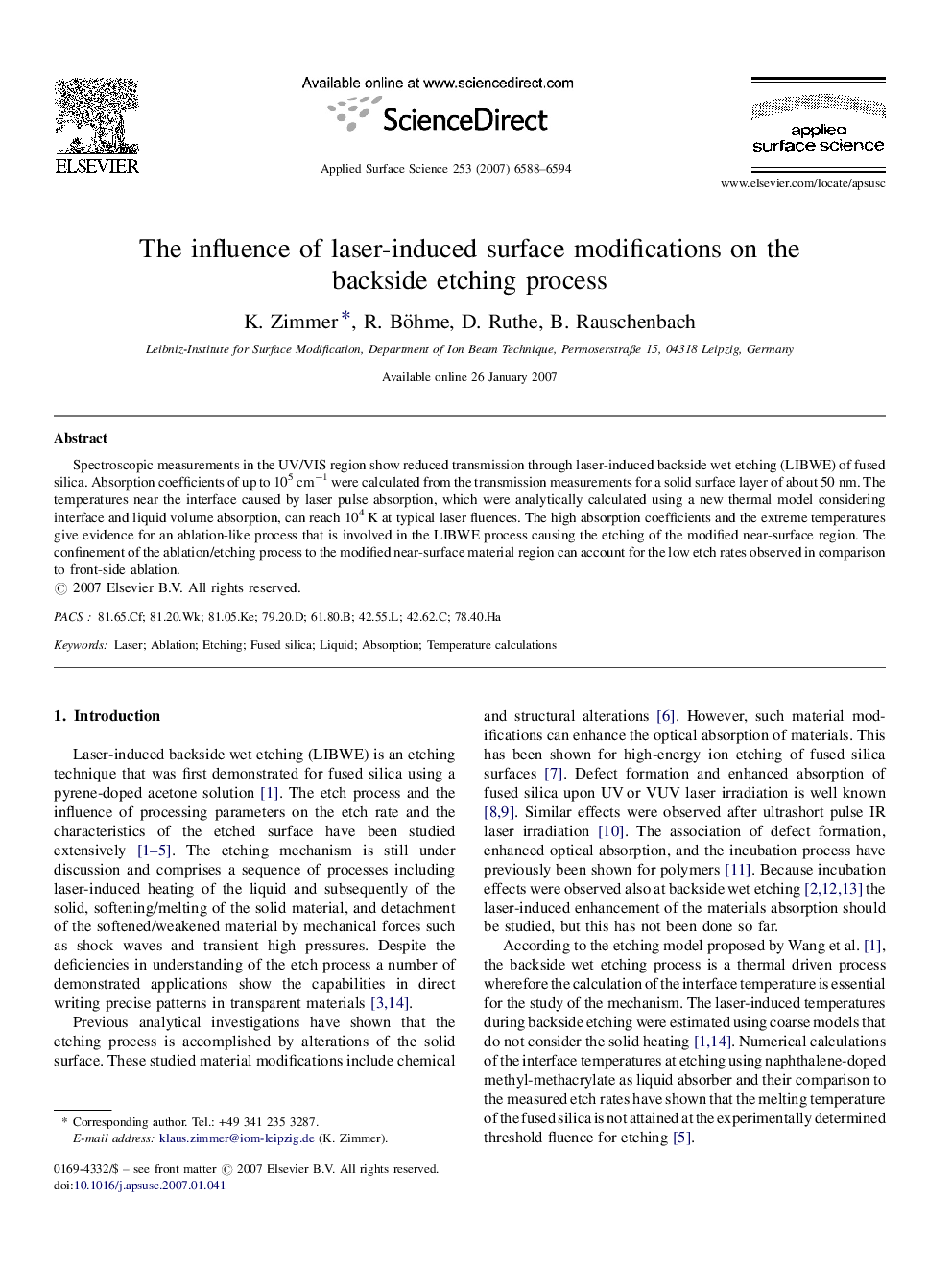| Article ID | Journal | Published Year | Pages | File Type |
|---|---|---|---|---|
| 5364744 | Applied Surface Science | 2007 | 7 Pages |
Abstract
Spectroscopic measurements in the UV/VIS region show reduced transmission through laser-induced backside wet etching (LIBWE) of fused silica. Absorption coefficients of up to 105Â cmâ1 were calculated from the transmission measurements for a solid surface layer of about 50Â nm. The temperatures near the interface caused by laser pulse absorption, which were analytically calculated using a new thermal model considering interface and liquid volume absorption, can reach 104Â K at typical laser fluences. The high absorption coefficients and the extreme temperatures give evidence for an ablation-like process that is involved in the LIBWE process causing the etching of the modified near-surface region. The confinement of the ablation/etching process to the modified near-surface material region can account for the low etch rates observed in comparison to front-side ablation.
Keywords
Related Topics
Physical Sciences and Engineering
Chemistry
Physical and Theoretical Chemistry
Authors
K. Zimmer, R. Böhme, D. Ruthe, B. Rauschenbach,
